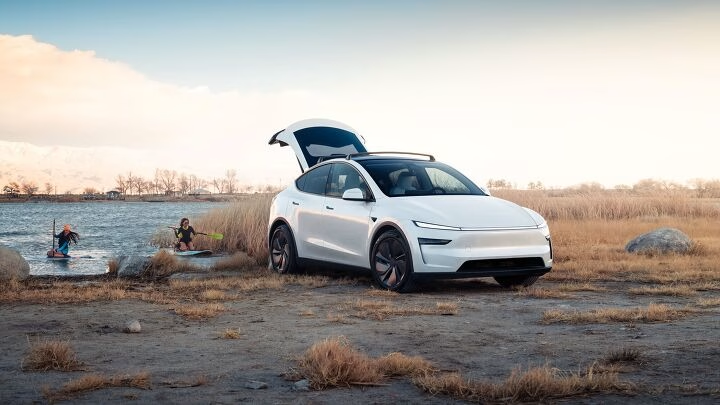Understanding the Implications of Tesla’s Odometer Lawsuit
The automotive industry is no stranger to lawsuits, but a recent case involving Tesla has raised eyebrows and sparked significant discussion among consumers and industry experts alike. A California Tesla owner, Nyree Hinton, has filed a lawsuit alleging that the automaker’s odometers are inaccurately reporting mileage, which he claims has led to premature expiration of his vehicle’s warranty. This case not only highlights potential issues with Tesla’s technology but also raises broader questions about consumer rights and corporate accountability in the electric vehicle market.
What Are the Allegations Against Tesla?
Hinton’s lawsuit centers on the claim that his 2020 Model Y’s odometer recorded mileage at least 15 percent faster than actual driving. For instance, he asserts that on some days, the vehicle indicated he had driven 72 miles when he had only traveled about 20. This discrepancy has significant implications, particularly as it relates to warranty coverage. Hinton argues that the inflated mileage readings caused his 50,000-mile basic warranty to expire much sooner than expected, leaving him responsible for costly repairs—specifically, a $10,000 suspension repair.
The lawsuit seeks both punitive and compensatory damages for Tesla owners in California, potentially affecting over a million vehicles. The complaint suggests that by linking warranty limits and lease mileage caps to inflated odometer readings, Tesla may be increasing repair revenue while reducing warranty obligations. This situation raises critical questions about transparency and fairness in the automotive industry, especially for consumers who invest heavily in electric vehicles.
How Does This Case Reflect on Tesla’s Business Practices?
The allegations against Tesla are not isolated. The company has faced scrutiny in the past regarding its marketing practices, particularly concerning the driving ranges of its vehicles. Critics argue that Tesla’s claims about range and performance can sometimes be misleading, which has led to legal challenges. In this context, Hinton’s lawsuit can be seen as part of a broader pattern of consumer pushback against perceived corporate overreach.
Experts suggest that this case could set a precedent for how automakers are held accountable for the accuracy of their vehicle metrics. If Hinton’s claims are substantiated, it may prompt other manufacturers to reevaluate their practices regarding odometer readings and warranty policies. Additionally, it could lead to increased regulatory scrutiny of electric vehicle manufacturers, particularly as the market continues to grow.
What Are the Potential Outcomes of the Lawsuit?
The lawsuit’s outcome could have significant ramifications for Tesla and its customers. If the court finds in favor of Hinton, it could lead to substantial financial penalties for Tesla and potentially force the company to revise its warranty policies. Furthermore, a ruling against Tesla could embolden other consumers to come forward with similar claims, potentially leading to a wave of litigation that could impact the company’s reputation and bottom line.
On the other hand, if Tesla successfully defends itself, it may reinforce the company’s current practices and provide a legal shield against future claims. The case has already been moved from a California state court to a federal venue, indicating the seriousness with which Tesla is treating the allegations. As the legal proceedings unfold, it will be crucial for consumers to stay informed about the developments and consider the implications for their own vehicle ownership experiences.
What Should Tesla Owners Know?
For current and prospective Tesla owners, this lawsuit serves as a reminder of the importance of understanding vehicle metrics and warranty terms. It highlights the need for transparency from manufacturers regarding how mileage and performance data are calculated. Consumers should be vigilant and proactive in monitoring their vehicle’s performance and should not hesitate to seek legal recourse if they believe they have been misled.
In an era where electric vehicles are becoming increasingly popular, the stakes are high for both consumers and manufacturers. As this lawsuit progresses, it will be essential to watch how it influences the broader landscape of the automotive industry, particularly in terms of consumer rights and corporate accountability.


